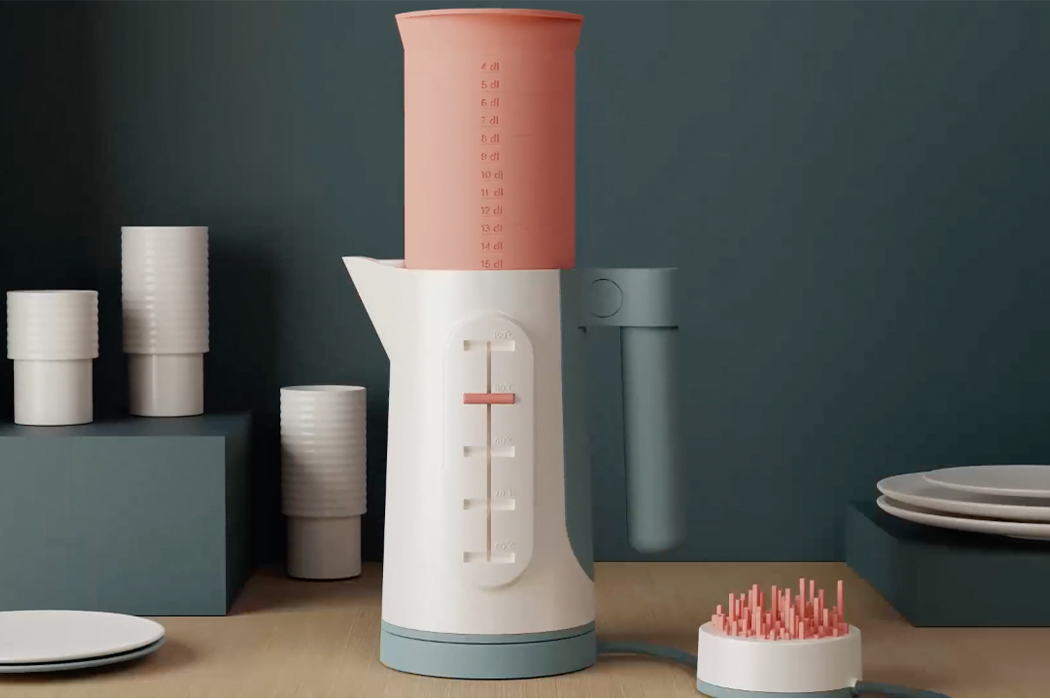
80% of the traditional electric kettle’s environmental impact occurs when in use. In just the EU alone, an estimated 117-200 million kettles are in use. Jacob Alm Andersson and Alexandra Fransson found that the excess energy that comes from the overuse of electric kettles in one day is enough to power all the streetlamps in England for an entire night. That’s a lot of energy. In designing an electric kettle that discourages users from overusing it and in return wasting less energy, Andersson and Fransson created The Blue Project, featuring an electric tea kettle that provides users with feedback to help promote sustainable use.
To keep users from overfilling their kettles, The Blue Project’s electric kettle features a water controller that forces its user to settle on a predetermined measure of water before filling the kettle up with water. In addition to the water controller, Andersson’s and Fransson’s tea kettle comes equipped with a temperature regulator that increases in resistance as the kettle’s user increases its temperature, providing a tangible source of feedback to show the increase in resources needed for higher temperatures.
Reminiscent of the tea kettle’s whistle, The Blue Project’s tea kettle comes attached to a device that physically shakes to signal when the kettle is being overworked, making it difficult for the user to ignore. Finally, along the bottom of the tea kettle’s base structure, a date reveals when resources for the kettle’s manufacturing have been compensated, an indication that marks the sustainability of any given product.
The Blue Project features an electric kettle that addresses three main concerns in regard to the excessive use of electric appliances: how we interact with controllers, the hidden nature of renewable resources, and the short lifespan of most products. Noticing that people could benefit from some constructive feedback and a sense of agency to change their habits that negatively affect the environment, visual regulators and controllers fill out The Blue Project kettle to help users use less energy when handling electric appliances like a tea kettle.
Designers: Jacob Alm Andersson and Alexandra Fransson
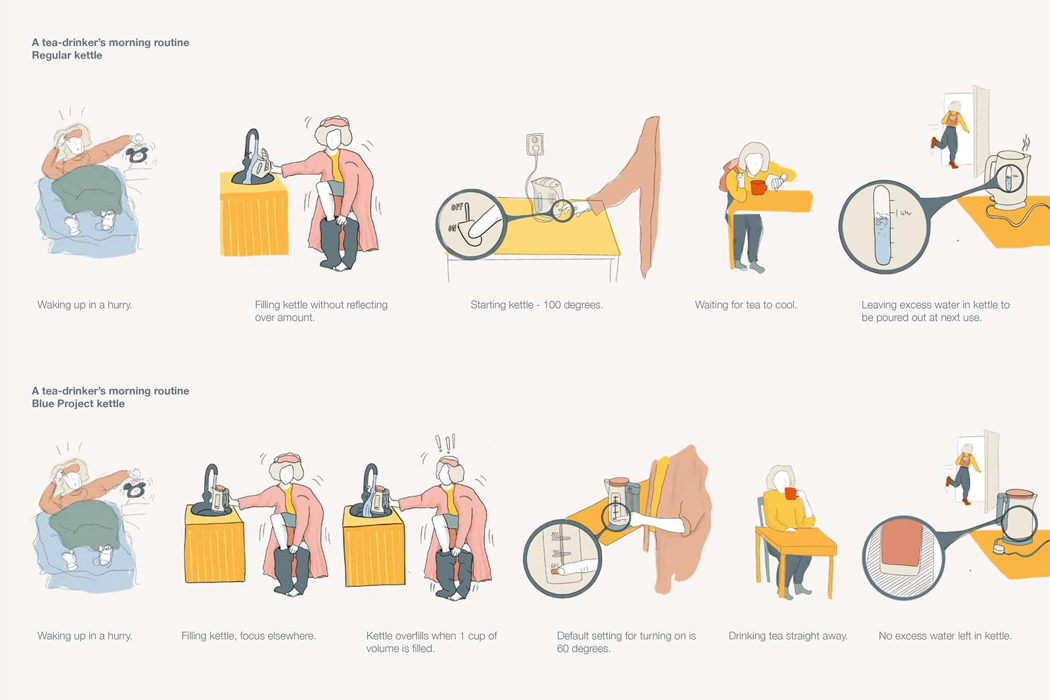
Most appliances are overused due to habitual and mindless user-product interaction.
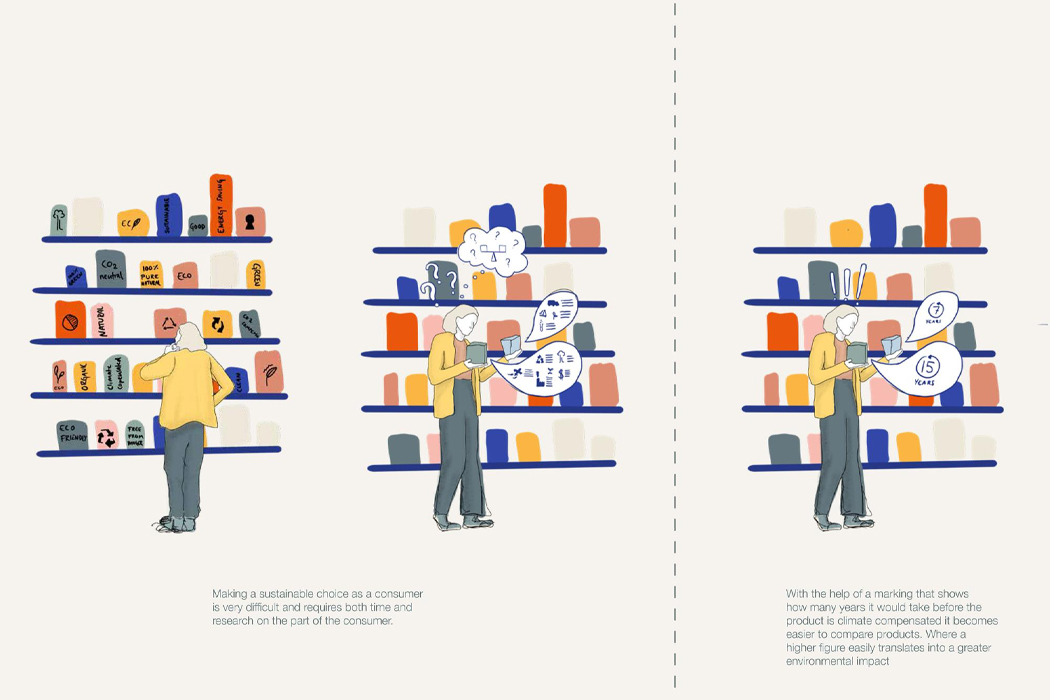
By marking products with lifecycle indicators, brands might feel prompted to make more sustainable products.
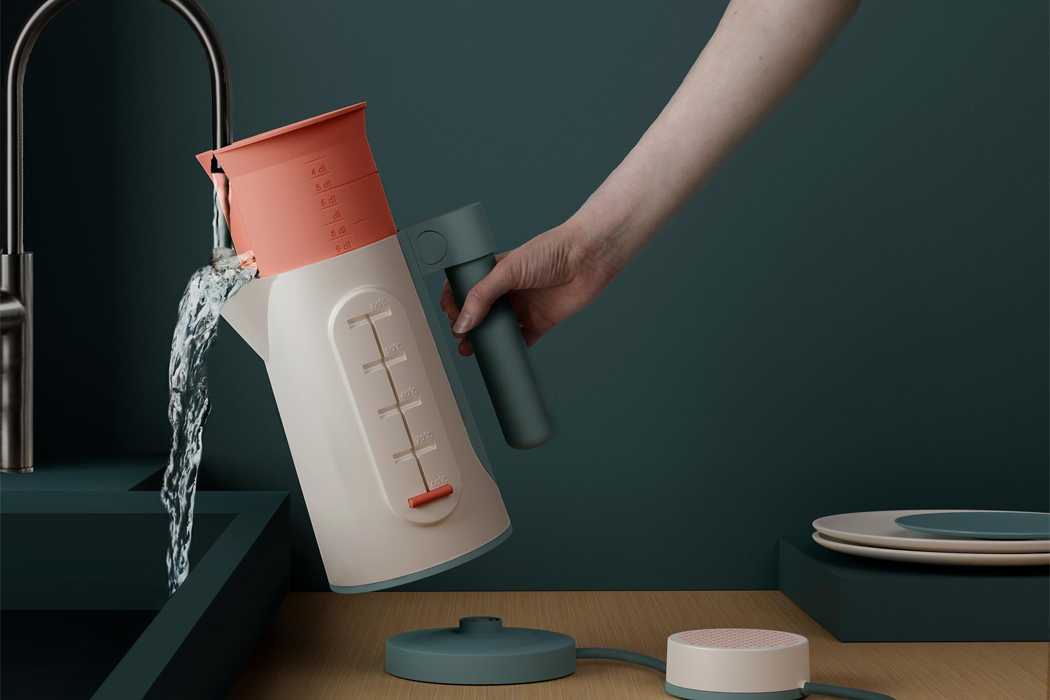
The Blue Project’s tea kettle works in a similar fashion to the conventional electric tea kettle, with additional water controllers and regulators.
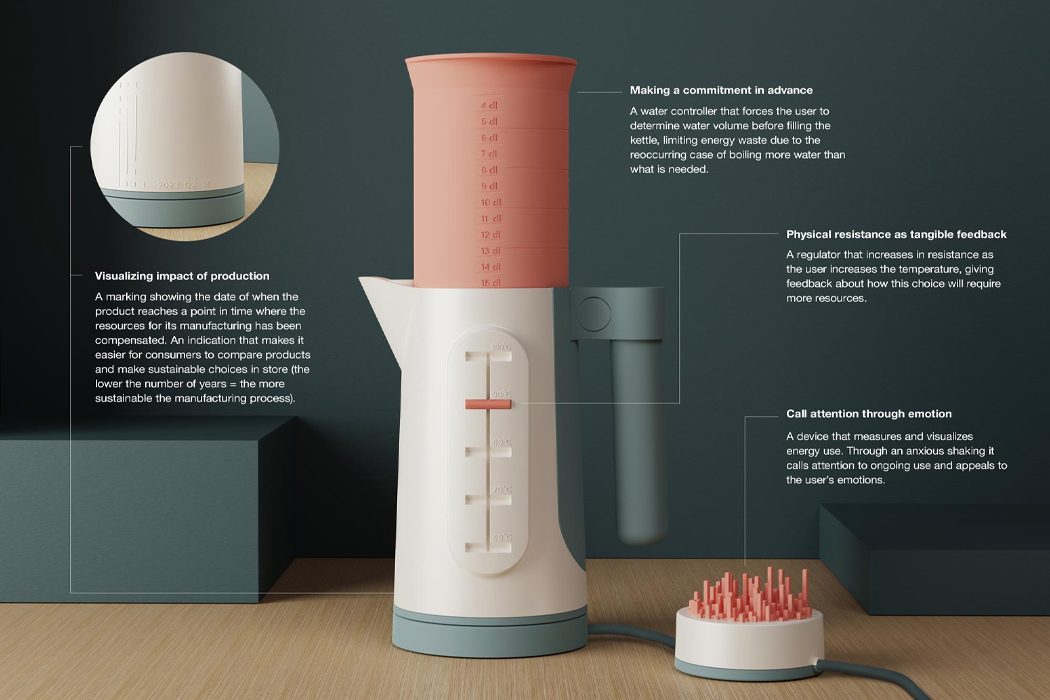
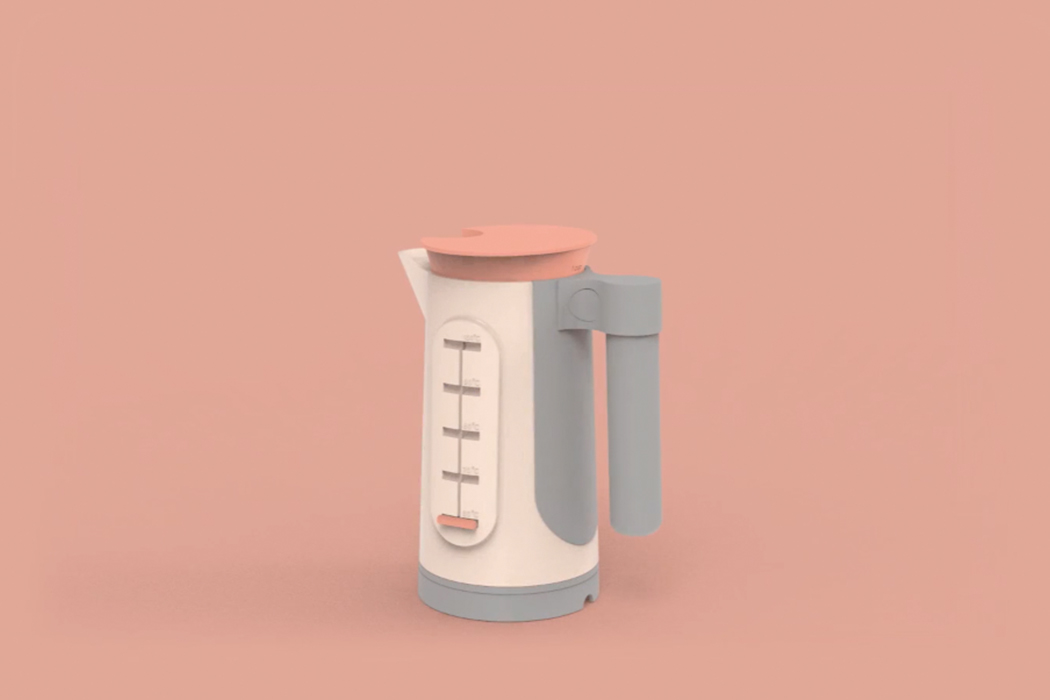
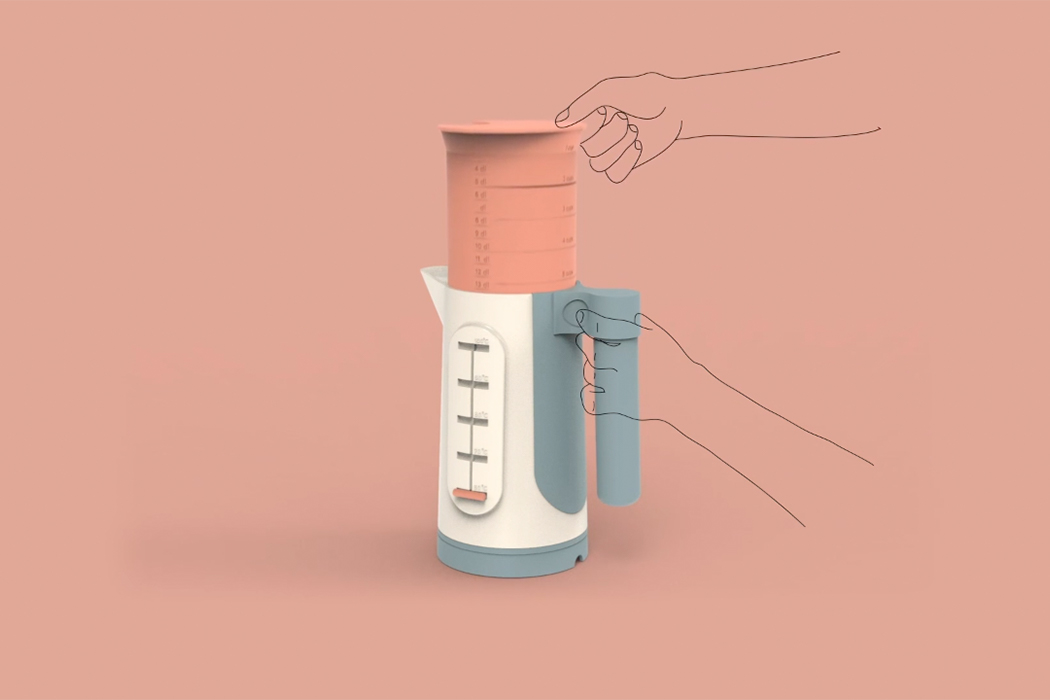
The more water measured before use requires a taller overall product, which works to discourage users from overfilling it.
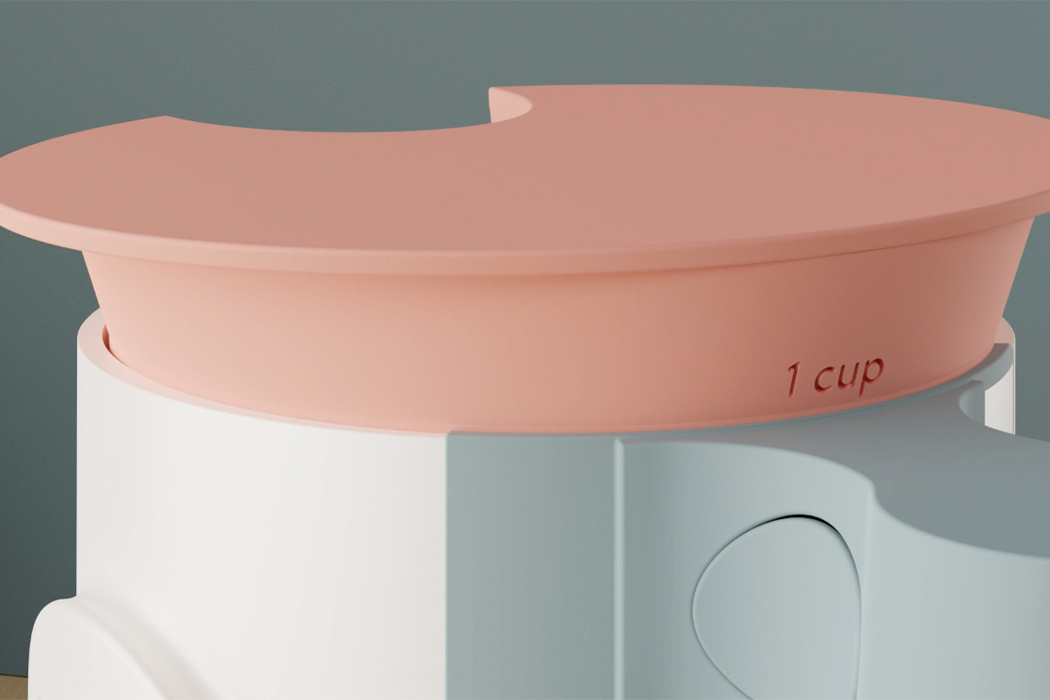
The tea kettle’s default measure is one cup.
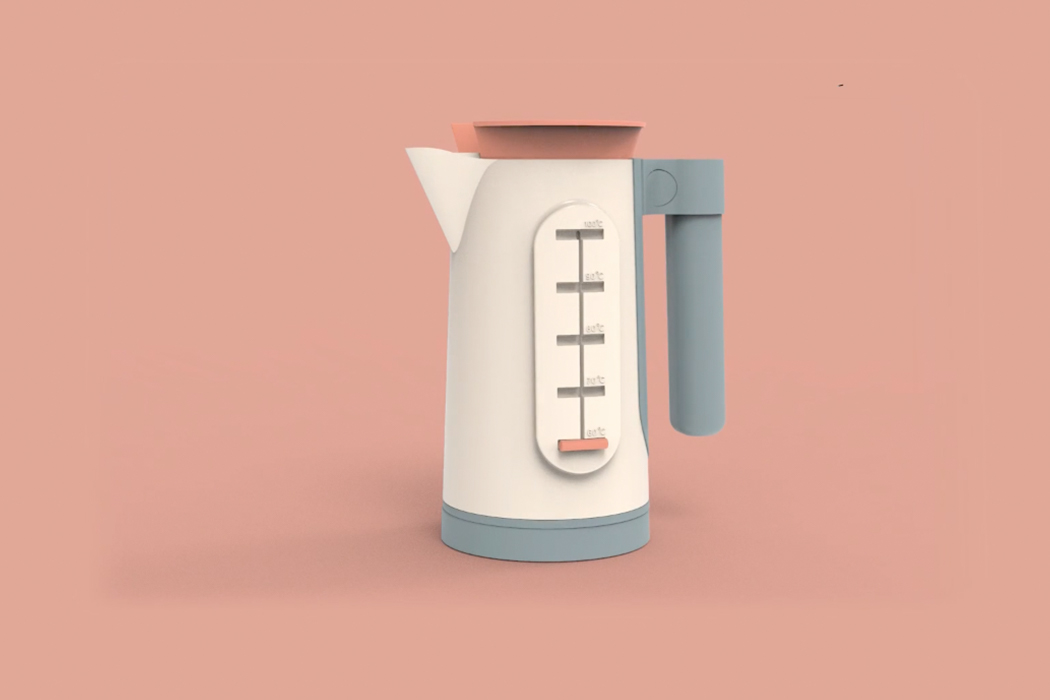
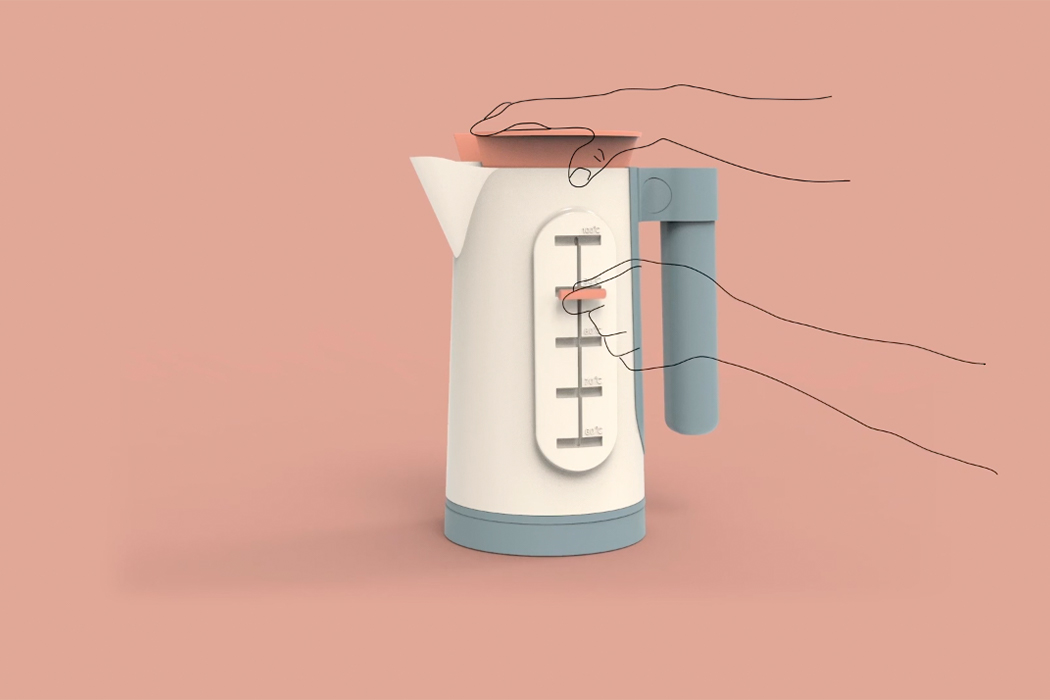
As the temperature is increased for heating, the temperature regulator nob increases in resistance.
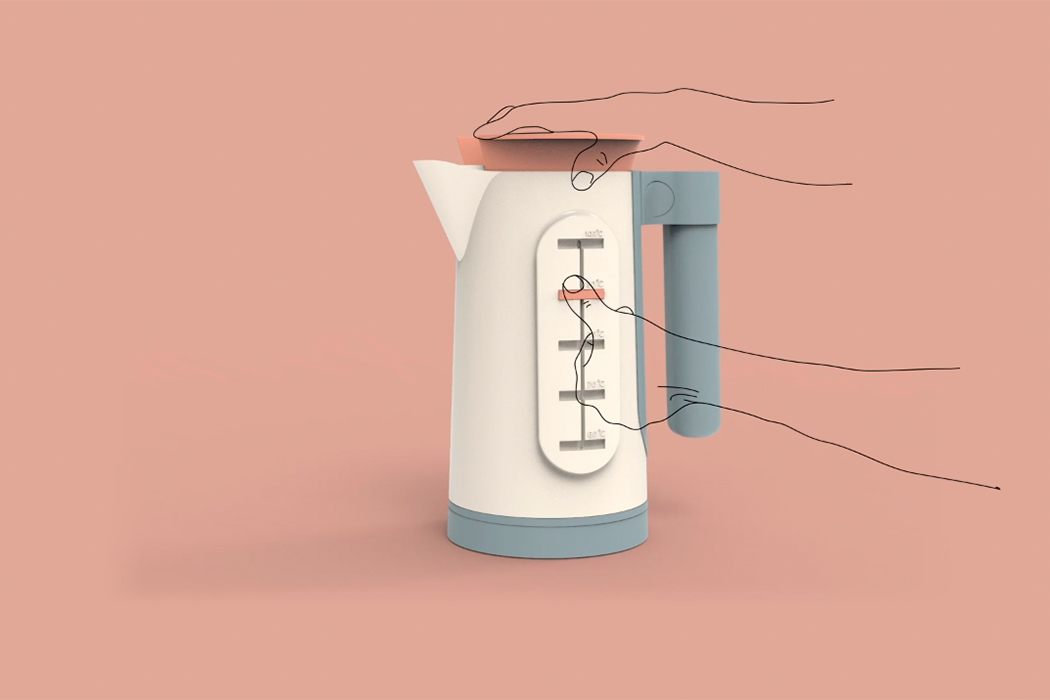
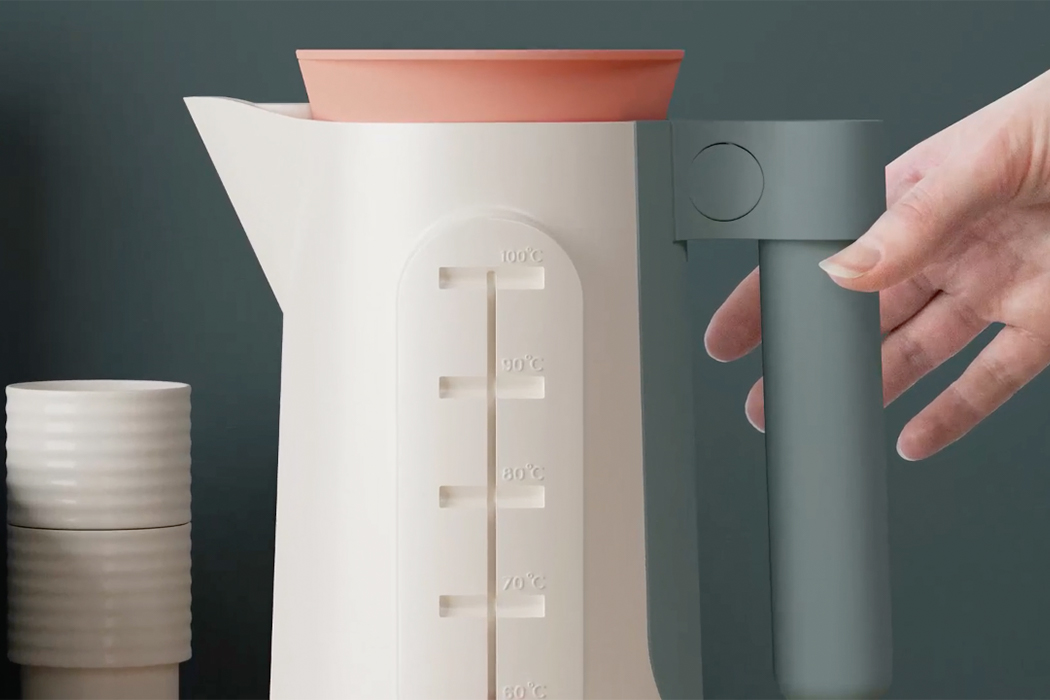
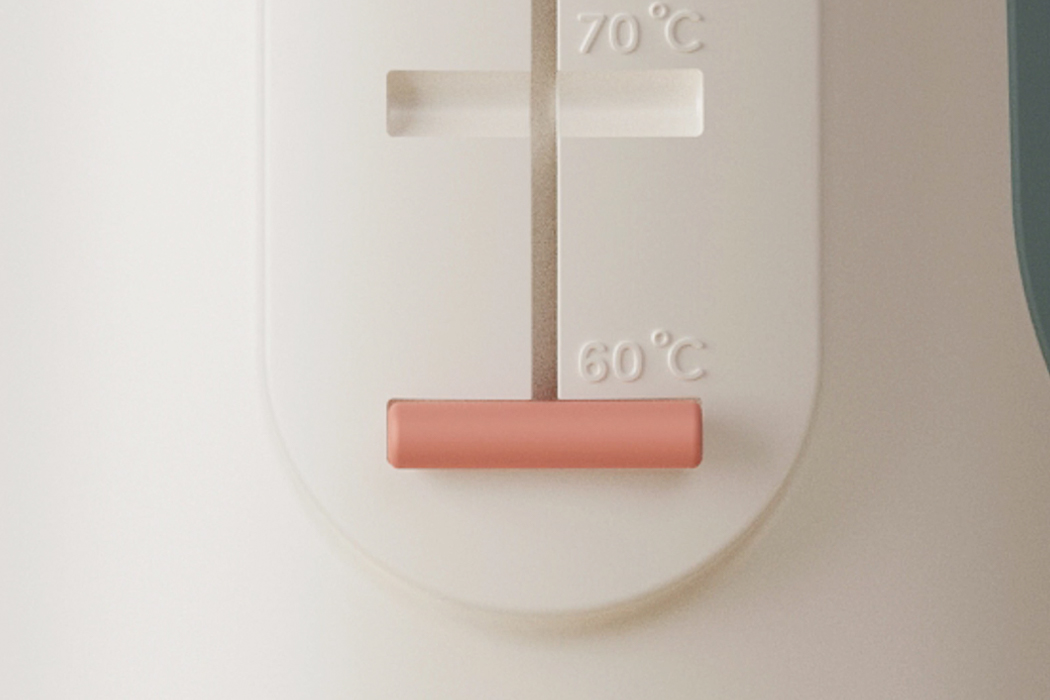
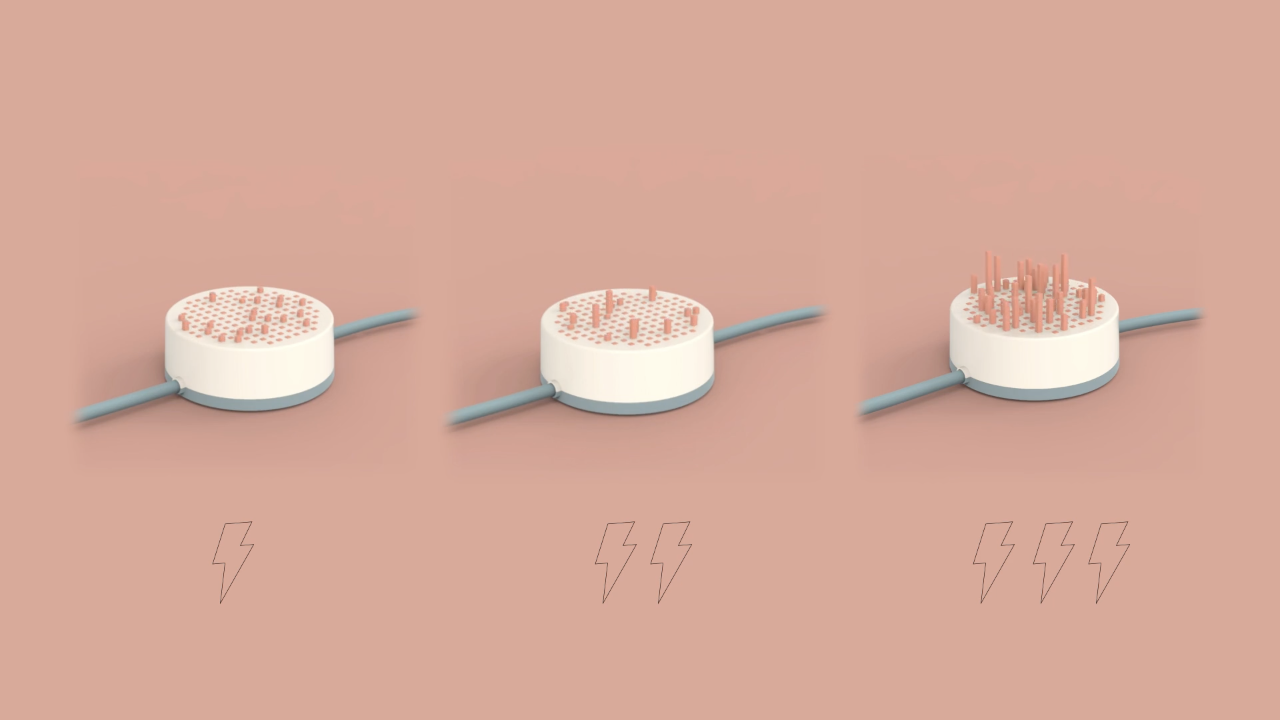
Like the whistle of a stovetop tea kettle, The Blue Project’s tea kettle features an attached device that indicates overuse.
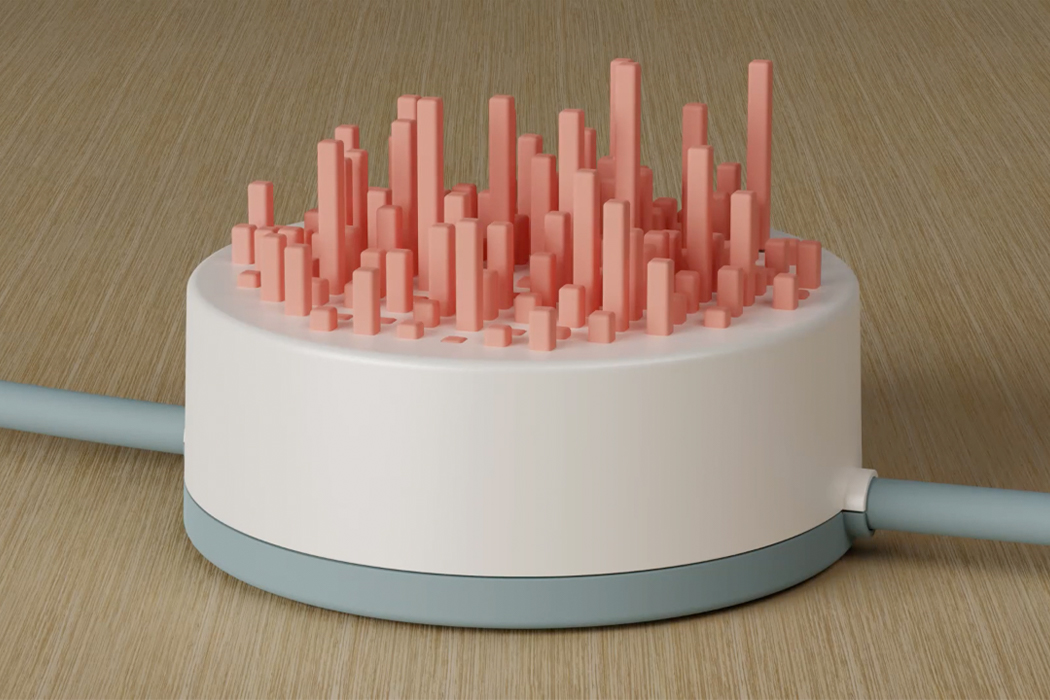
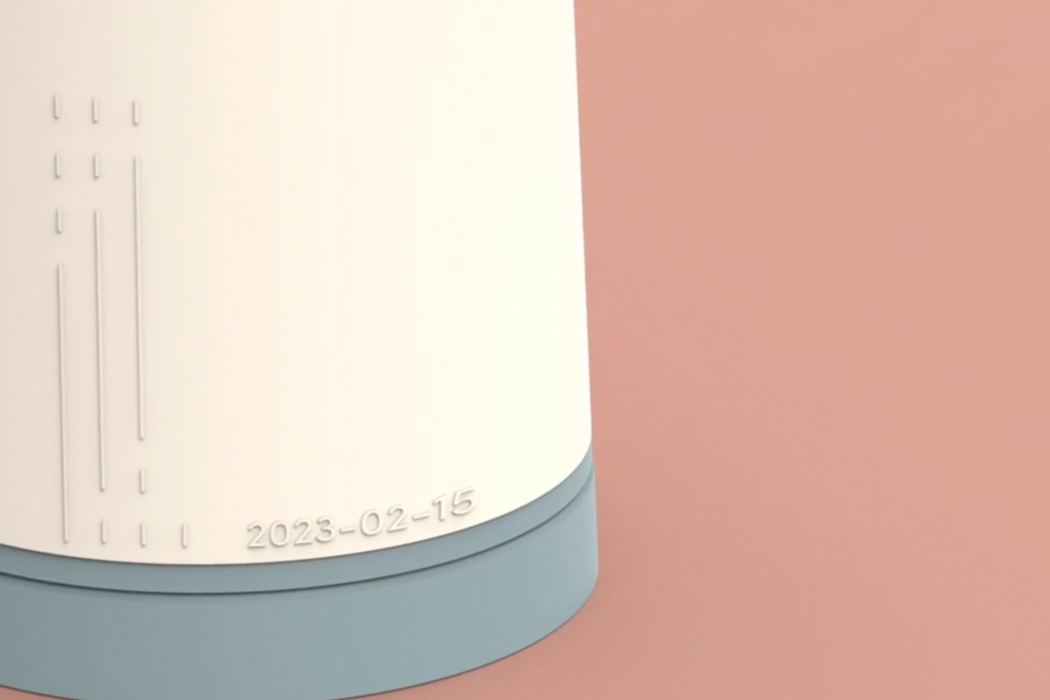
A date marking reveals when the resources used in manufacturing the tea kettle have been replenished.
0 Commentaires